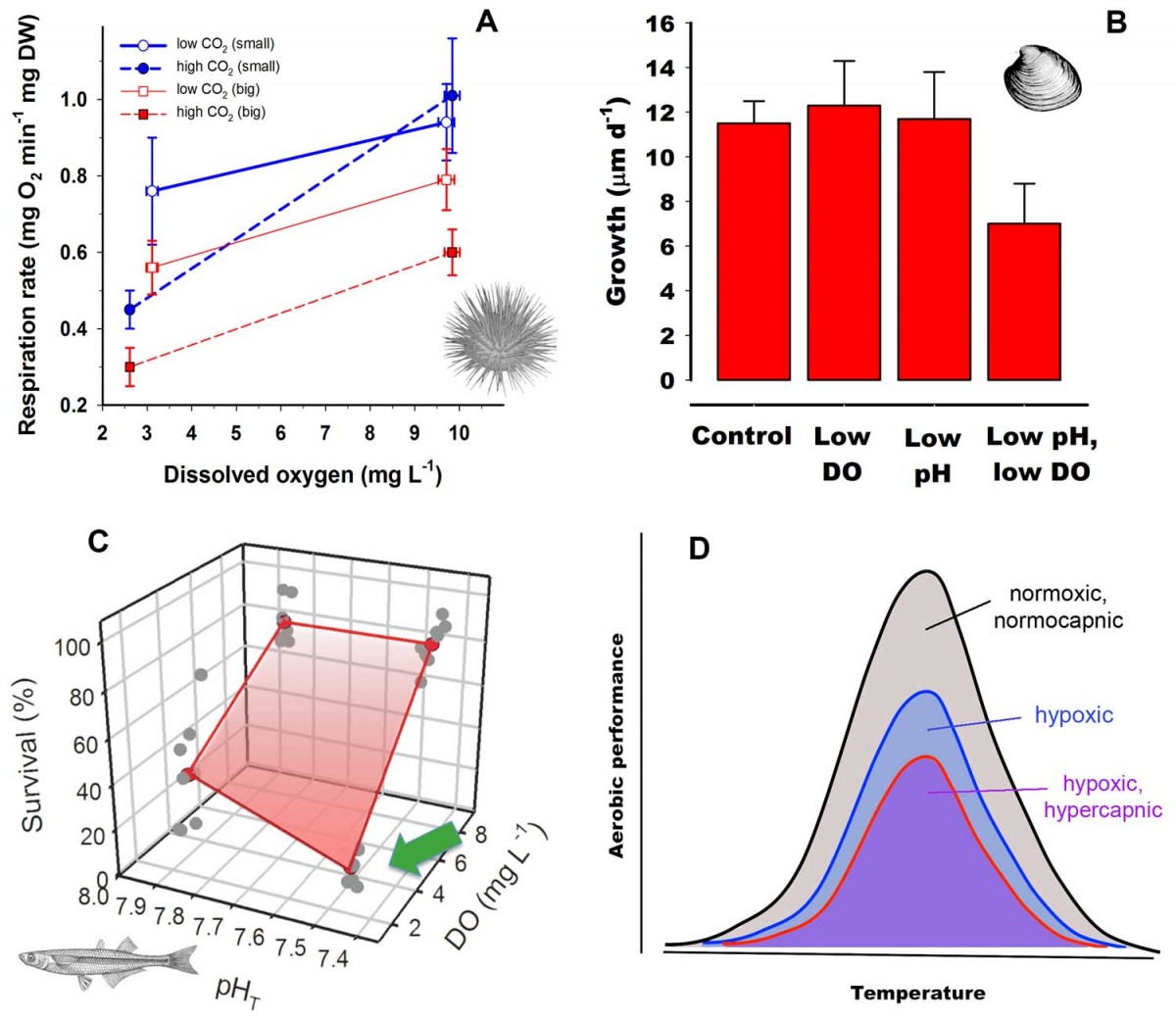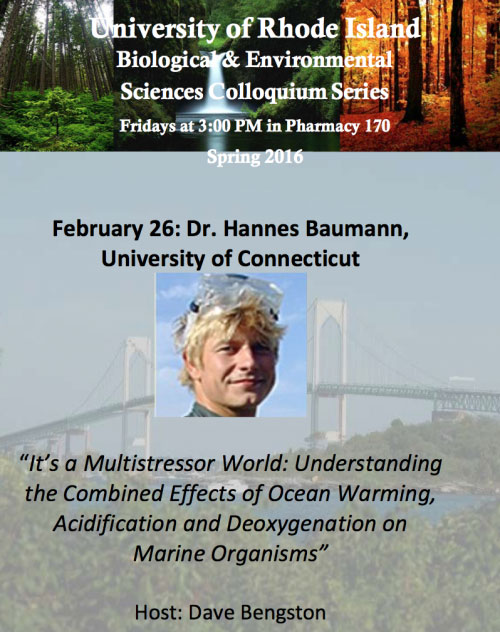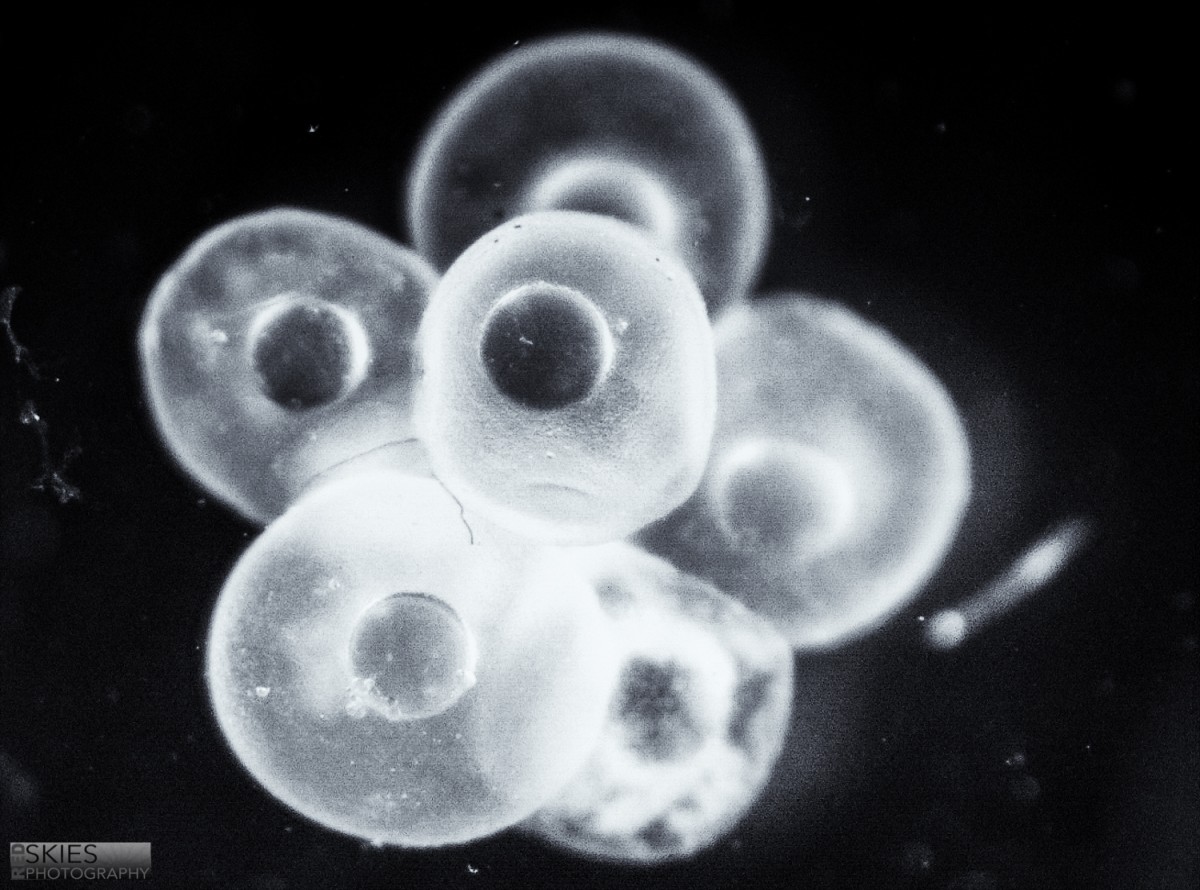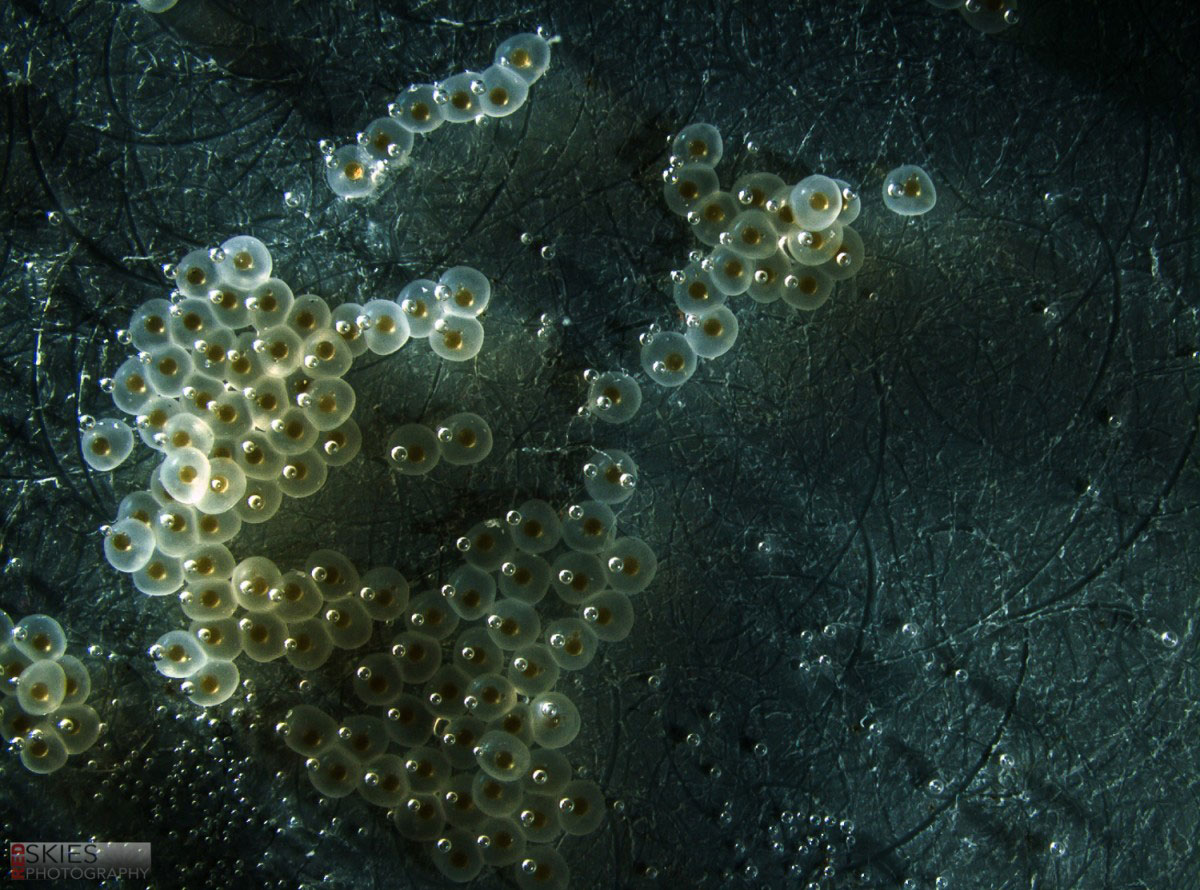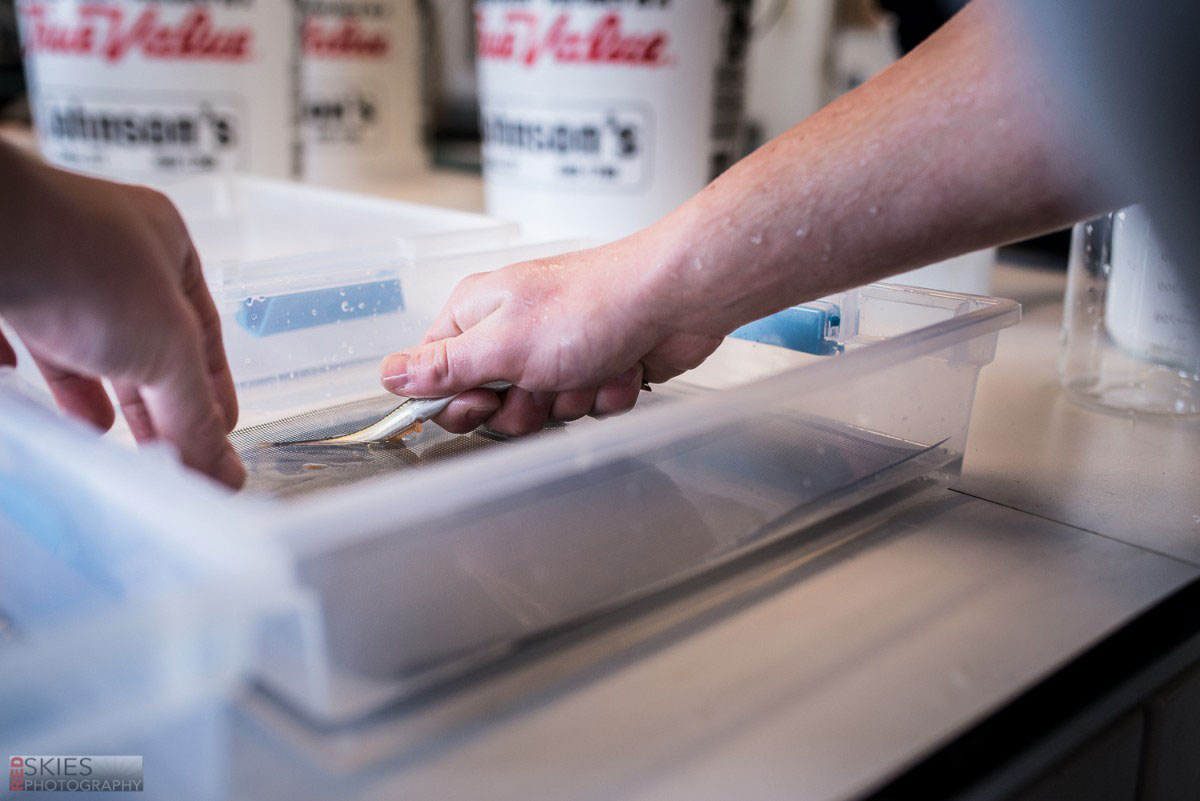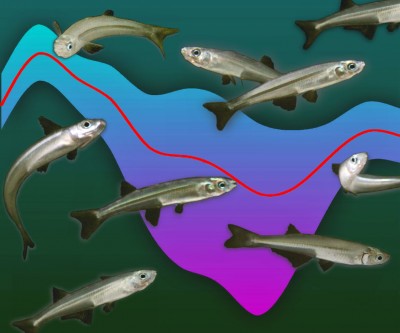Gobler & Baumann’s review provides a good overview over the nascent field of multi-stressor acidification and hypoxia work. A first part firmly establishes that virtually all hypoxic zones in the ocean are also acidified, given that metabolic processes (i.e., respiration) consume oxygen and release CO2 into the environment. In a second part, the sparse emerging evidence for multistressor effects of low pH (high CO2) and low oxygen are reviewed, showing that while the majority of effects are additively negative, every study so far has also found synergistically negative effects of combined stressors in at least one trait.
This invited review was published Open Access.
Gobler, C.J. and Baumann, H. (2016)
Hypoxia and acidification in ocean ecosystems: Coupled dynamics and effects on marine life.
Biology Letters 12:20150976
Abstract
There is increasing recognition that low dissolved oxygen (DO) and low pH conditions co-occur in many coastal and open ocean environments. Within temperate ecosystems, these conditions not only develop seasonally as temperatures rise and metabolic rates accelerate, but can also display strong diurnal variability, especially in shallow systems where photosynthetic rates ameliorate hypoxia and acidification by day. Despite the widespread, global co-occurrence of low pH and low DO and the likelihood that these conditions may negatively impact marine life, very few studies have actually assessed the extent to which the combination of both stressors elicits additive, synergistic or antagonistic effects in marine organisms. We review the evidence from published factorial experiments that used static and/or fluctuating pH and DO levels to examine different traits (e.g. survival, growth, metabolism), life stages and species across a broad taxonomic spectrum. Additive negative effects of combined low pH and low DO appear to be most common; however, synergistic negative effects have also been observed. Neither the occurrence nor the strength of these synergistic impacts is currently predictable, and there- fore, the true threat of concurrent acidification and hypoxia to marine food webs and fisheries is still not fully understood. Addressing this knowledge gap will require an expansion of multi-stressor approaches in experimental and field studies, and the development of a predictive framework. In consider- ation of marine policy, we note that DO criteria in coastal waters have been developed without consideration of concurrent pH levels. Given the per- sistence of concurrent low pH–low DO conditions in estuaries and the increased mortality experienced by fish and bivalves under concurrent acidifi- cation and hypoxia compared with hypoxia alone, we conclude that such DO criteria may leave coastal fisheries more vulnerable to population reductions than previously anticipated.
